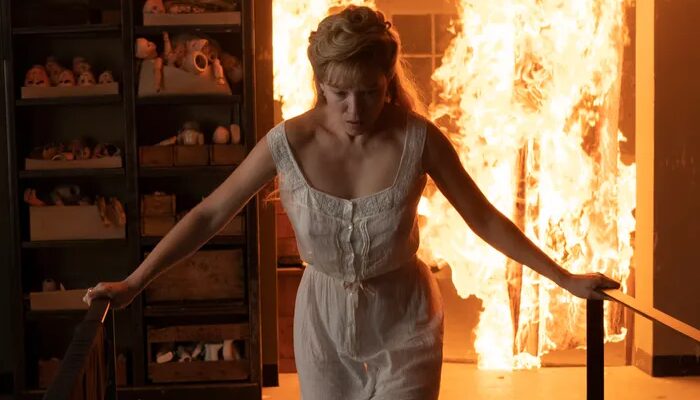THE DARK KNIGHT, A CLOCKWORK ORANGE, THE HURT LOCKER & More Added to the National Film Registry
Inductees include record nine films directed by women and seven by people of color

The Dark Knight, A Clockwork Orange, The Hurt Locker, and More Added to the National Film Registry
The Dark Knight, Shrek, Grease, The Blues Brothers, Lillies of the Field, The Hurt Locker, A Clockwork Orange, The Joy Luck Club and The Man With the Golden Arm are among this year’s additions to the National Film Registry by the Library of Congress.
“This is not only a great honor for all of us who worked on ‘The Dark Knight,’ this is also a tribute to all of the amazing artists and writers who have worked on the great mythology of Batman over the decades,” said Christopher Nolan, director of The Dark Knight.
Lillies of the Field star Sidney Poitier, who became the first Black person to win the Oscar for Best Actor, said, “‘Lilies of the Field’ stirs up such great remembrances in our family, from the littlest Poitiers watching a young and agile ‘Papa’ to the oldest – Papa Sidney himself!”
Janet Yang, producer of The Joy Luck Club, based on Amy Tan’s bestseller, said, “I could have never imagined, after reading a few chapters of Amy’s manuscript that eventually became ‘The Joy Luck Club’ book, that my dream of its adaptation would result in a movie that is still talked about decades later. When people tell me – and so many from so many cultures have – that the movie helped heal a rift with their family, I am immensely gratified, and it reminds me of the power of the moving image.”
The list also includes the 1943 musical Cabin in the Sky with an all-Black cast including Ethel Waters, Lena Horne, Louis Armstrong, Rex Ingram, and Eddie “Rochester” Anderson; the 2010 documentary “Freedom Riders” about the 1961 Civil Rights movement; the 1973 concert film Wattstax, featuring Richard Pryor, Isaac Hayes and the Staples Singers; and 1971’s Sweet Sweetback’s Baadasssss Song, which saw Melvin Van Peebles producing, directing, writing, scoring starring and financing it with his salary from directing Watermelon Man.
A place on the list — always made up of 25 films — guarantees the film will be preserved under the terms of the National Film Preservation Act. The criteria for selection is that the movies are “culturally, historically or aesthetically” significant, and they must also at least be 10 years old by the date of induction. The Librarian makes the annual registry selections after conferring with members of the National Film Preservation Board, and Library specialists. Monday’s selections bring the total to 800. This year’s selections include records of nine films directed by women and seven directed by filmmakers of color.
“The National Film Registry is an important record of American history, culture and creativity, captured through one of the great American artforms, our cinematic experience,” said Librarian of Congress Carla Hayden. “With the inclusion of diverse filmmakers, we are not trying to set records but rather to set the record straight by spotlighting the astonishing contributions women and people of color have made to American cinema, despite facing often-overwhelming hurdles.”
The nine films directed by women on the 2020 list include Kathryn Bigelow’s Best Picture winner The Hurt Locker, centered on soldiers in Baghdad dismantling unexploded bombs. She remains the only woman to win the Academy Award for Best Director.
“My desire in making ‘The Hurt Locker’ was to honor those in uniform serving in dangerous posts abroad, so I have been gratified by the resonance the film has had over the last 10 years,” Bigelow said. “For it to be selected by the National Film Registry is both humbling and thrilling.”
The other films directed by women include the 1913 silent film Suspense co-directed by Lois Weber; the 1918 silent film Bread about a woman’s struggle with poverty, directed by Ida May Park; the 1929 film With Car and Camera Around the World by Aloha Wanderwell; the 1950 film Outrage, directed by Ida Lupino; one of the first feature films directed by a Black woman with Kathleen Collins’ Losing Ground from 1982; Julie Dash’s 1982 student film Illusions,; the 1994 documentary The Devil Never Sleeps by Lourdes Portillo; and the 2006 doc Mauna Kea: Temple Under Siege co-directed by Joan Lander.
Leave your thoughts on the 25 films selected for the National Film Registry below in the comments section. Readers seeking to support this type of content can visit our Patreon Page and become one of FilmBook’s patrons. Readers seeking more movie news can visit our Movie News Page. Want up-to-the-minute notifications? FilmBook staff members publish by Email, Twitter, Facebook, Instagram, Tumblr, Pinterest, Reddit, and Flipboard. This news was brought to our attention by Variety.
Related Articles
FilmBook's Newsletter
Subscribe to FilmBook’s Daily Newsletter for the latest news!












